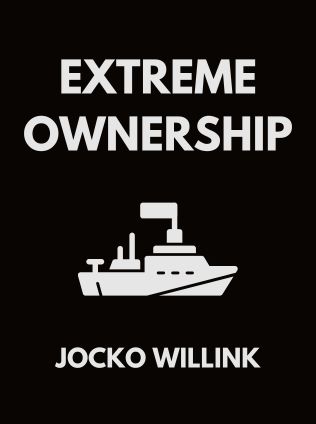
Entrepreneurial Marketing
Beyond Professionalism to Creativity, Leadership, and Sustainability
By Philip Kotler
Published 03/2023
About the Author
Philip Kotler is a distinguished professor and author, widely regarded as the father of modern marketing. He has published numerous influential books and articles that have shaped the way businesses approach marketing and management. Kotler's work integrates deep theoretical insights with practical applications, making his contributions invaluable to both academics and practitioners. His latest book, "Entrepreneurial Marketing: Beyond Professionalism to Creativity, Leadership, and Sustainability," continues this tradition by addressing the evolving landscape of marketing in a rapidly changing world.
Main Idea
The central thesis of "Entrepreneurial Marketing" by Philip Kotler is that traditional marketing methods are no longer sufficient in today’s fast-paced, ever-changing environment. The book advocates for an entrepreneurial approach to marketing that emphasizes creativity, leadership, and sustainability. This approach requires integrating various departments within a company to foster stronger engagement, increased customer retention, and higher levels of loyalty. Kotler introduces the omnihouse model, which provides a holistic perspective on how entrepreneurial marketing should be executed, combining elements of creativity, professionalism, and dynamic market conditions to drive sustainable growth.
Table of Contents
- Introduction
- The Omnihouse Model: A Holistic Perspective of Entrepreneurial Marketing
- The Entrepreneurship Model for Marketing
- Rethinking Competition: Collaborating for Sustainability
- Navigating Customers: Progressive Approach for Stronger Market Position
- Integrating Functions: Converging Departments Within an Organization
- Converging Creativity and Productivity: From Idea Generation to Capital Optimization
- Converging Innovation and Improvement: Solution-Centric Approach for Higher Profit Margin
- Converging Leadership and Management: Maintaining Values and Increasing Market Value
- Building Omni Capabilities: From Preparation to Execution
- Visioning the Next Curve
The Omnihouse Model: A Holistic Perspective of Entrepreneurial Marketing
Kotler introduces the omnihouse model as a framework to understand the new genre of entrepreneurial marketing. This model combines multiple elements within an organization to foster creativity, innovation, entrepreneurship, and leadership (CI-EL) along with productivity, improvement, professionalism, and management (PI-PM). These clusters interact with dynamic factors such as technology, politics, economics, social/cultural elements, and market conditions, forming the foundation for developing effective marketing strategies.
“Omnihouse refers to an organization that combines multiple elements. Each of these components plays an individual role and also collaborates with the other parts of the business.” — Philip Kotler
The omnihouse model integrates marketing with finance and emphasizes the importance of technology and humanity in driving business success. It highlights how operations, guided by marketing objectives, ensure financial goals are met, enabling the organization to remain competitive and adaptable in a dynamic business environment.
This model underscores the need for companies to create paths of stronger engagement, increased customer retention, and higher levels of loyalty. By converging different departments within a company, the omnihouse model facilitates a more interconnected and flexible organization capable of thriving in a rapidly changing marketplace. The model is housed in two clusters: the entrepreneurship group, which includes creativity, innovation, entrepreneurship, and leadership, and the professionalism group, which comprises productivity, improvement, professionalism, and management. These clusters interact with external drivers like technology, politics, economics, social and cultural elements, and market conditions, collectively forming a robust foundation for effective marketing strategies.
The Entrepreneurship Model for Marketing
Kotler identifies three main capabilities essential for entrepreneurial marketing: the ability to see opportunities, a willingness to take risks, and the ability to collaborate. These capabilities are crucial for converting solutions into value, whether through higher profits, increased market value, or customer satisfaction.
“Differentiation is essential, but it must be consistently realized in marketing campaigns and supported by sales.” — Philip Kotler
By focusing on positioning, differentiation, and brand, marketers can ensure their offerings stand out in the marketplace. Kotler emphasizes the importance of balancing entrepreneurial elements with professionalism to avoid stagnation and promote long-term growth.
Entrepreneurial marketing requires a mindset that dares to take risks and the ability to cooperate with other parties. Marketers must be able to convert solutions into value, which can take on different forms. For the company, it will typically mean higher profits. Investors will be looking for a higher market value of the company. For customers, the value will be in products that can solve their problems.
- Opportunity Seekers: Focus on positioning and customer management.
- Risk Takers: Engage in differentiation and product management.
- Network Collaborators: Concentrate on brand development and management.
This entrepreneurial mindset must be supported by solid professionalism and management. Without this balance, companies risk falling into a "play-safe" attitude that cannot support long-term growth. Kotler’s model highlights the importance of positioning, differentiation, and brand in entrepreneurial marketing. Opportunity seekers relate to positioning, risk-takers engage in differentiation, and network collaborators focus on brand development. By converging these elements, companies can foster a more dynamic and resilient marketing strategy.
Sign up for FREE and get access to 1,400+ books summaries.
You May Also Like
The Lean Startup
How Today's Entrepreneurs Use Continuous Innovation to Create Radically Successful Businesses
By Eric RiesWho Moved My Cheese?
An Amazing Way to Deal with Change in Your Work and in Your Life
By Spencer Johnson, M.D.Make Your Bed
Little Things That Can Change Your Life...And Maybe the World
By William H. McRavenThe Ride of a Lifetime
Lessons Learned from 15 Years as CEO of the Walt Disney Company
By Robert Iger



















